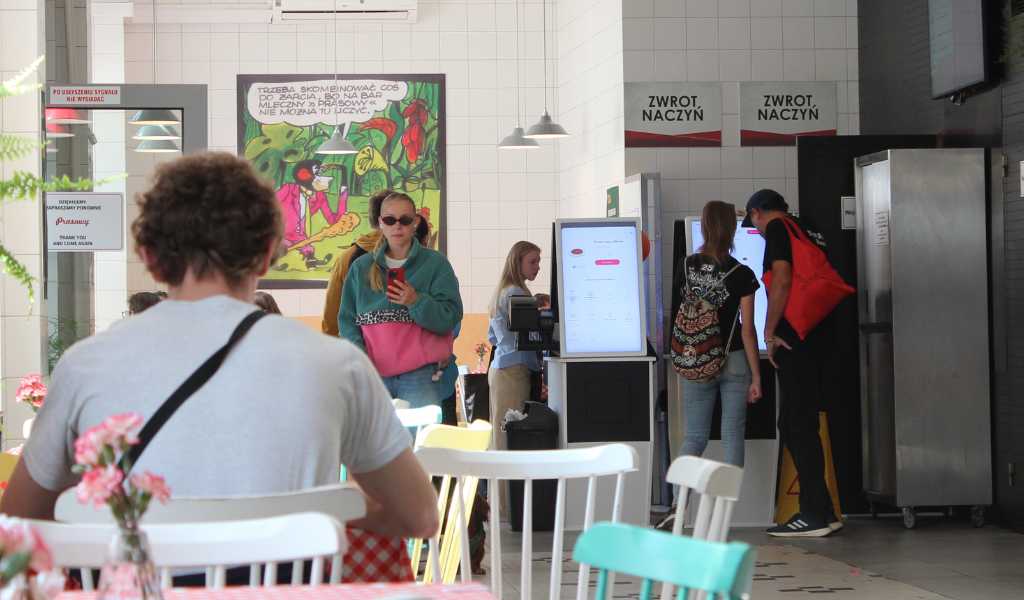Two state-subsidised ‘public restaurants’ will be piloted in the UK as part of new research into whether they can help improve public health by providing an affordable alternative to unhealthy convenience food. The pilot restaurants will open in Dundee and Nottingham offering locally produced food and supporting sustainable and ethical farming practice.

Public restaurants are not a brand-new idea. They were a staple of wartime Britain and countries like Brazil and Poland have run them for years. But this project is the first of its kind in the UK today, testing whether public restaurants could help tackle modern issues like poor diets, food inequality, and environmental concerns.
Offering alternatives to ultra-processed foods
The public restaurants will offer healthy alternatives to the fast food, ready meals and other unhealthy convenience options that have skyrocketed in the UK in recent decades. These convenience foods are high in salt, sugar, saturated and trans fats, and UPFs. UPFs contain non-food additives and are linked with significant health problems and the UK is now on par with the US for the highest rate of ultra-processed food (UPF) consumption in the world.
Dr Elise Wach, lead researcher for the project, from the Institute of Development Studies, says:
“It’s easy to see why most people are eating a lot of unhealthy convenience foods. The clue is in the name – it is convenient. So, our challenge is to make good food just as convenient. And by good, we mean food that doesn’t have loads of additives, doesn’t increase your risk of diabetes or cancer, and doesn’t cost the earth or exploit people when it is produced.
“Many initiatives seek to educate people about how to cook and how to make healthier choices, and while there’s certainly a role for that, they don’t address the barriers to healthy and sustainable eating that many people, especially families with children, face. 1 in 10 people in the UK don’t even have a freezer. Foodwork – planning, shopping, cooking, feeding, cleaning up – all takes time, and physical and mental energy. It requires you to be near shops that offer decent ingredients, money to buy that food, plus decent cooking facilities.
“Public restaurants can change that. By offering nutritious meals at affordable prices, these spaces could help level the playing field. They’re designed to be welcoming to everyone – no matter your income or background, they are attractive, comfortable places to be in – somewhere that you could take the kids or a colleague or your mum for a good meal.”
Reflecting needs and priorities of communities
The pilot restaurants are set to open in April 2026, and will be co-designed with local residents and partners in Dundee and Nottingham to ensure they reflect the tastes, needs and priorities of their communities.
These restaurants could be part of public infrastructure, much like public transport or public libraries.
Anna Chworow, Deputy Director at Nourish Scotland, says:
“Public services benefit all of us, but they are most important and beneficial to people on lower incomes. Public restaurants are part of a solution to food insecurity, alongside better social security.”
In Nottingham, Councillor Cheryl Barnard, says:
“The restaurant [in Nottingham] supports the city’s vision of becoming the UK’s first “social eating city,” where people come together to enjoy good food and good company, and no one is left behind.
“Social eating builds community. And in a city where over 1 in 5 households with children face food insecurity, this kind of initiative can make a real difference.”
Social eating can boost wellbeing and reduce isolation and in Nottingham, it could also help address food insecurity. A 2023 study showed 23.4% of households with children in Nottinghamshire experience food insecurity, higher than the national average and much higher than households without children (14.8%).
Learning from past and present
The project, called DISHED (co-Designing innovative Infrastructure for Sustainable, Healthy and Equitable Diets), will not only draw on local voices but also learn from past and present public restaurant models, including those in Denmark, Brazil, and Poland, as well as post-war Britain, undertaking the first international comparison of public restaurant models in the UK.
A rigorous evaluation of the restaurant pilots will provide invaluable insights into the efficacy and public benefits of the approach.
DISHED is led by the Institute of Development Studies, in partnership with Nourish Scotland, University of Nottingham and the University of Sussex. In collaboration with Nottingham City Council, Nottinghamshire County Council, Dundee City Council, Dundee Healthy Weight Partnership, Faith in Community Dundee, Maxwell Community Centre and Garden, Thriving Nottingham and FareShare Midlands.
Funding for the project comes from a UK-wide initiative from UKRI to tackle growing food inequality and will help support the broader aims of the NHS 10-year plan.
